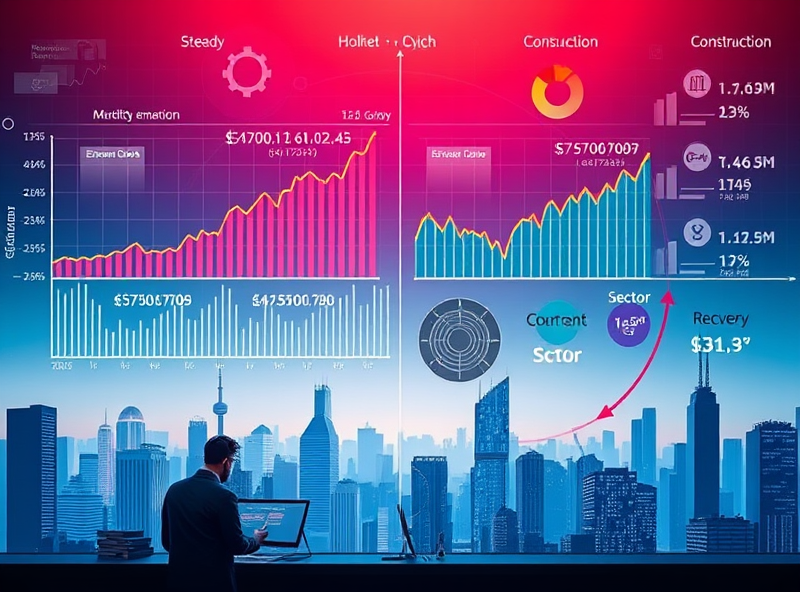
How Global Trends Shape Investments: Navigating the Economy and Stock Markets
Global Economic Trends Driving Uncertainty

In today’s interconnected world, global economic trends are creating a ripple effect of uncertainty across markets. Factors such as geopolitical tensions, inflationary pressures, and shifting trade policies are reshaping the financial landscape. For instance, rising inflation has led central banks to adopt aggressive interest rate hikes, which directly impact borrowing costs for businesses and individuals. Additionally, geopolitical conflicts disrupt supply chains, causing volatility in commodity prices and increasing costs for manufacturers. Investors must navigate these challenges by diversifying their portfolios, staying informed about global developments, and considering long-term strategies to weather the storm. Understanding these trends can help individuals make informed decisions, safeguard their financial future, and adapt to an ever-changing economic environment.
The Impact of Trade and Monetary Policies

Trade and monetary policies play a crucial role in shaping the global economy and influencing stock markets. Trade policies, such as tariffs, import/export restrictions, and trade agreements, can directly impact industries and the flow of goods between countries. For instance, higher tariffs on imports may lead to increased costs for businesses, which can then affect their profitability and stock performance. On the other hand, free trade agreements often encourage economic growth by reducing barriers and fostering international collaboration.
Monetary policies, managed by central banks, influence the economy through interest rates and money supply. When central banks lower interest rates, borrowing becomes cheaper, encouraging businesses to invest and consumers to spend. This often leads to stock market growth. Conversely, higher interest rates can slow down economic activity, potentially causing stock market declines.
Understanding these policies and their effects can help investors make informed decisions. For example, during periods of trade tension or monetary tightening, investors might look for safer assets like bonds or diversify their portfolios to mitigate risks. Staying informed about global trade agreements and central bank announcements is key to navigating these economic shifts effectively.
Regional Growth and Its Market Implications

In today’s interconnected world, regional growth trends play a pivotal role in shaping global markets. When a specific region experiences economic expansion, it often triggers a ripple effect across industries and international markets. For instance, rapid industrialization in emerging economies can lead to increased demand for commodities, which benefits resource-rich nations. Similarly, technological advancements in one region can drive innovation and competition globally. As an investor, staying informed about regional growth patterns can help you identify opportunities in sectors like infrastructure, technology, and renewable energy. By understanding these trends, you can align your portfolio with regions poised for growth, ensuring a more diversified and resilient investment strategy.
Global Economic Trends Driving Uncertainty

Navigating volatile markets can feel overwhelming, especially when global economic trends add layers of uncertainty. Factors like geopolitical tensions, inflation rates, technological advancements, and shifting consumer behaviors significantly influence the economy and stock markets. To craft effective investment strategies in such unpredictable times, it’s essential to focus on diversification, risk management, and staying informed about global events. Diversifying your portfolio across sectors and regions can help mitigate risks, while keeping an eye on emerging trends—such as green energy or AI technologies—can uncover new opportunities. Remember, patience and a long-term perspective are key when dealing with market volatility. By staying proactive and informed, you can turn uncertainty into an opportunity for growth.




